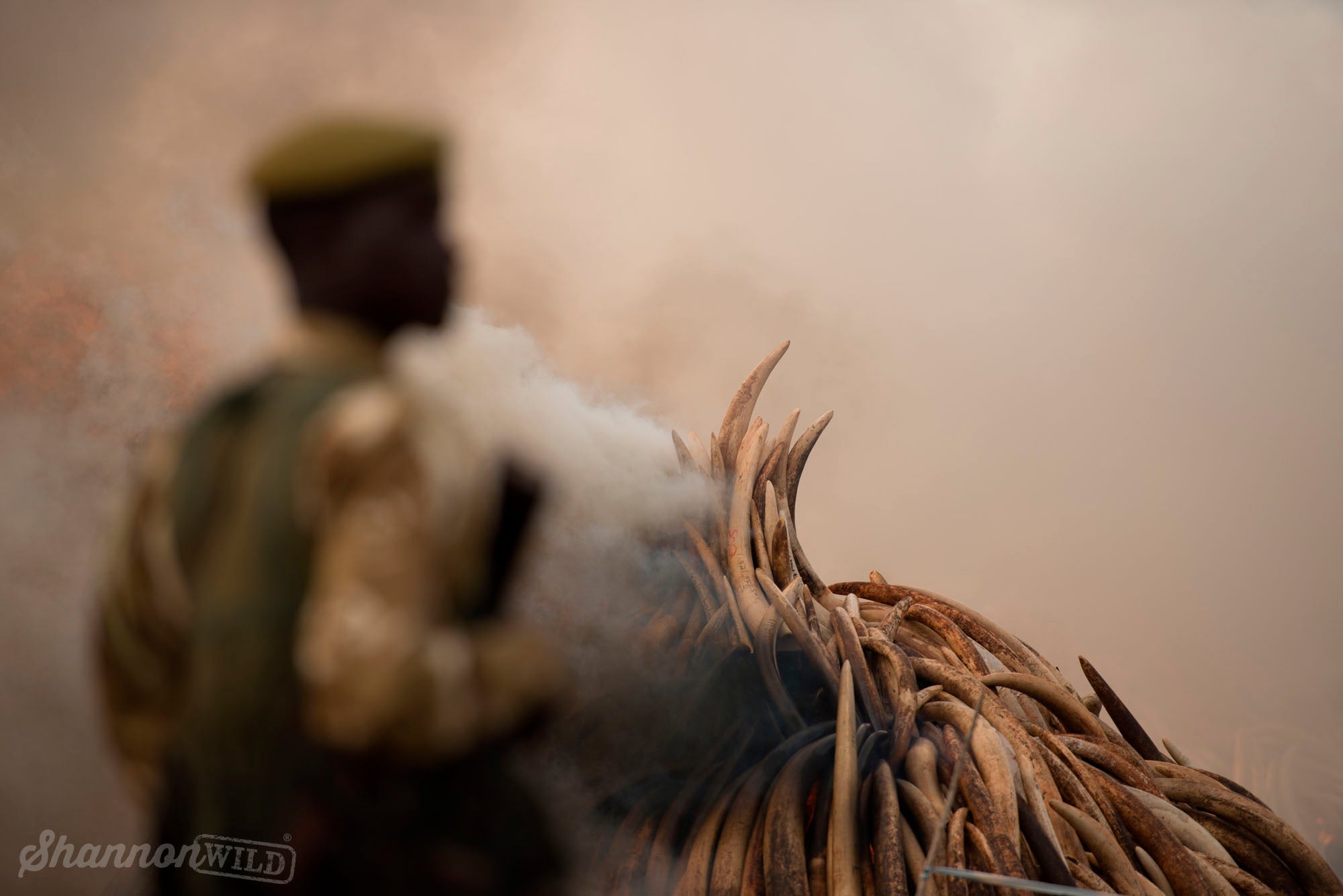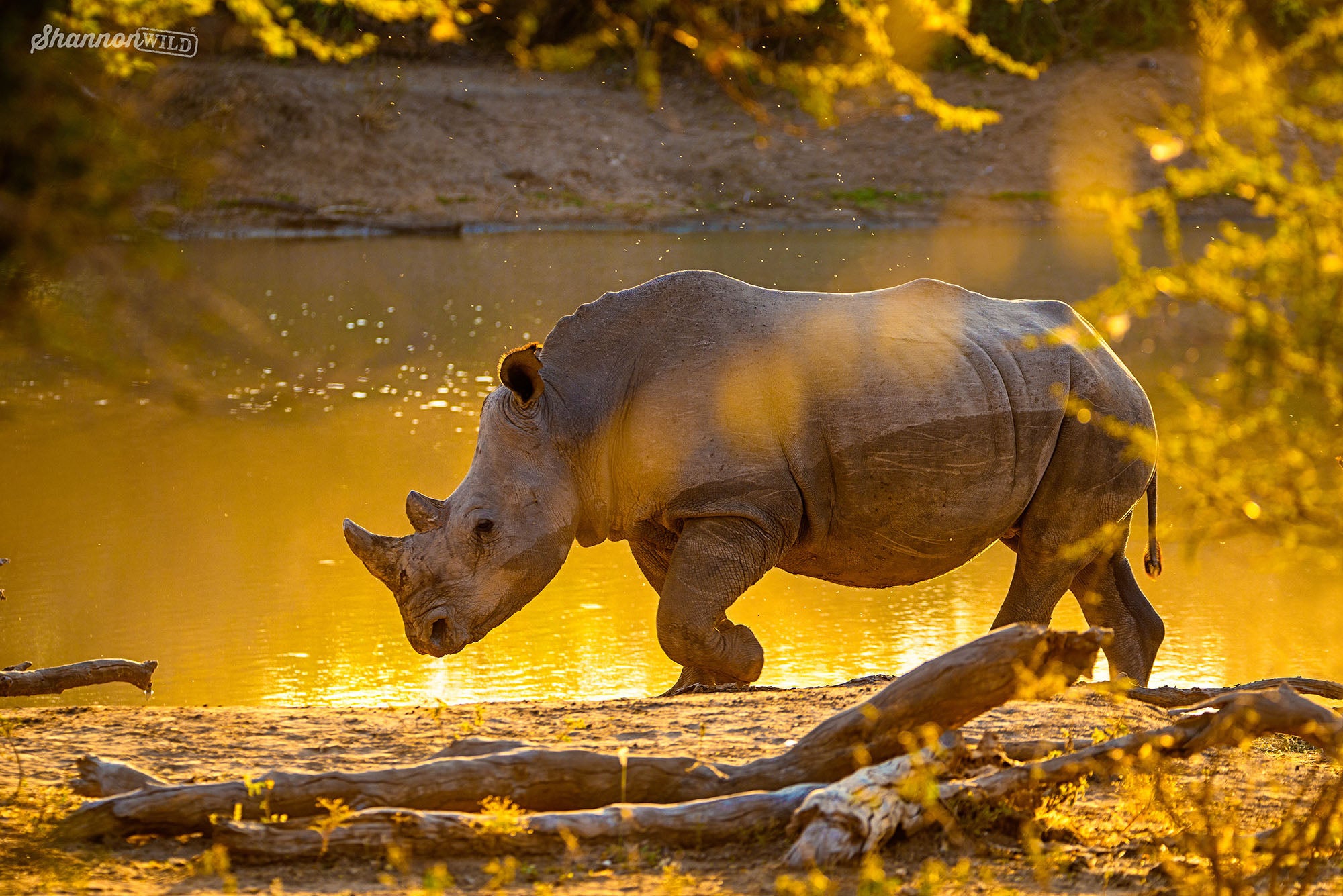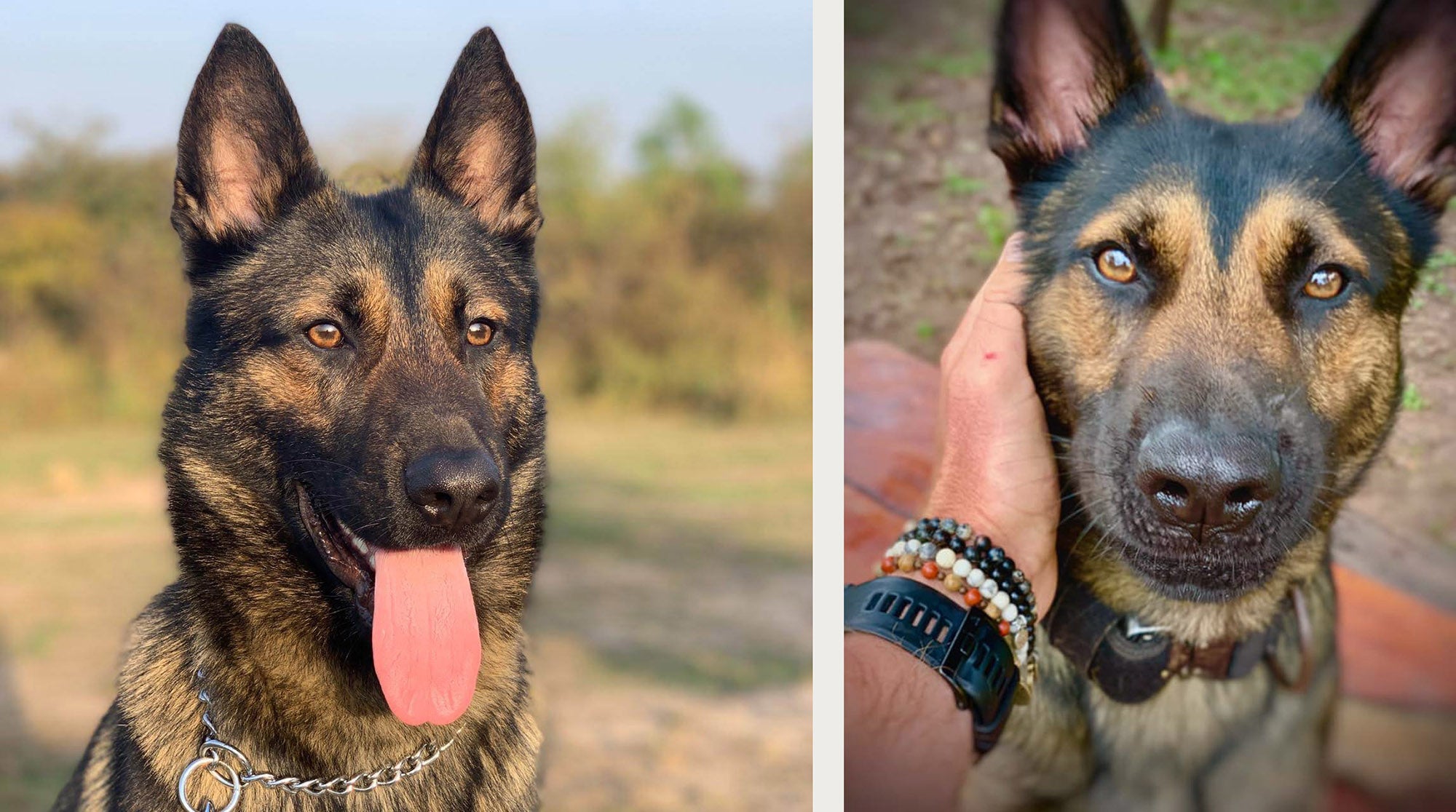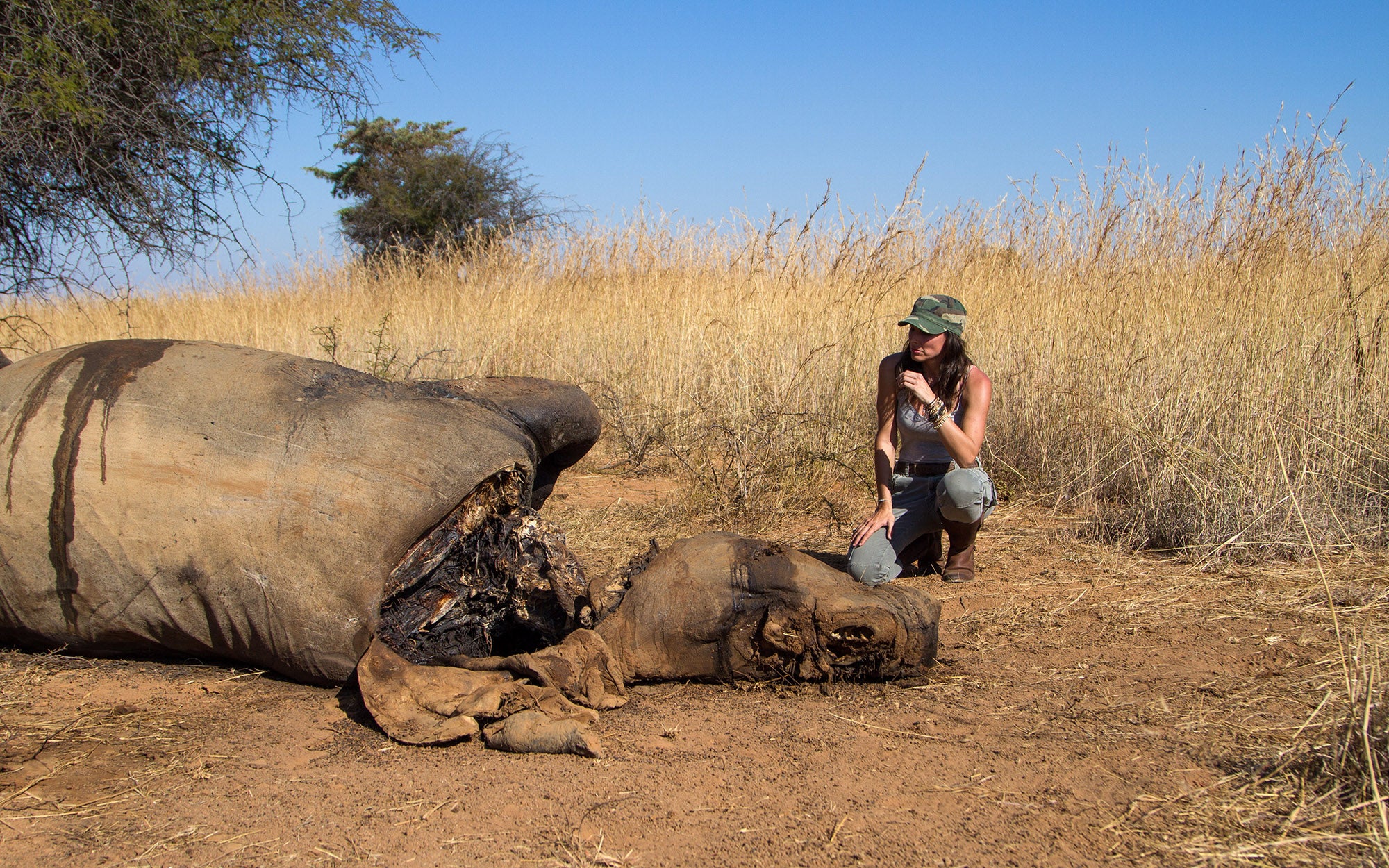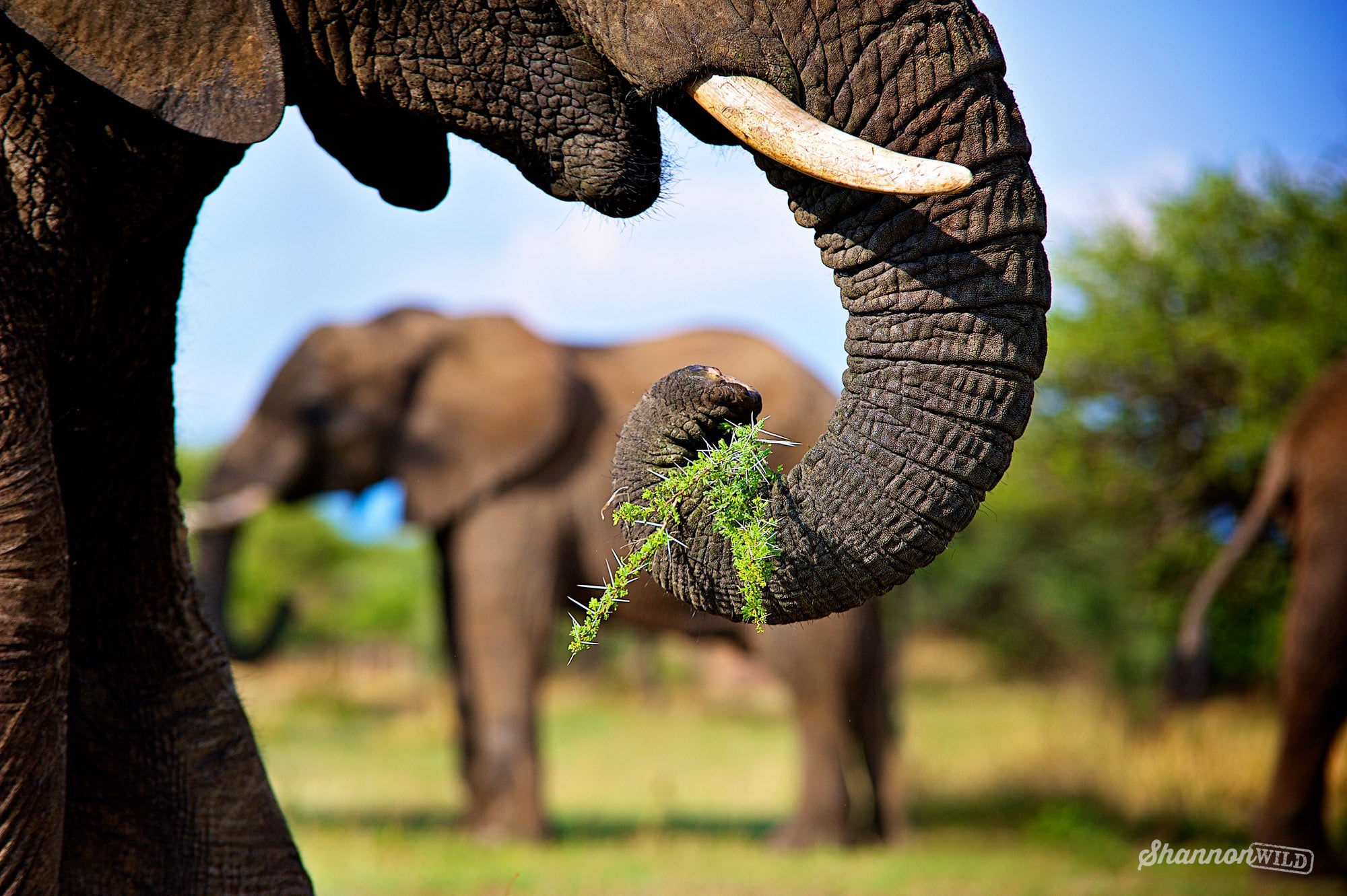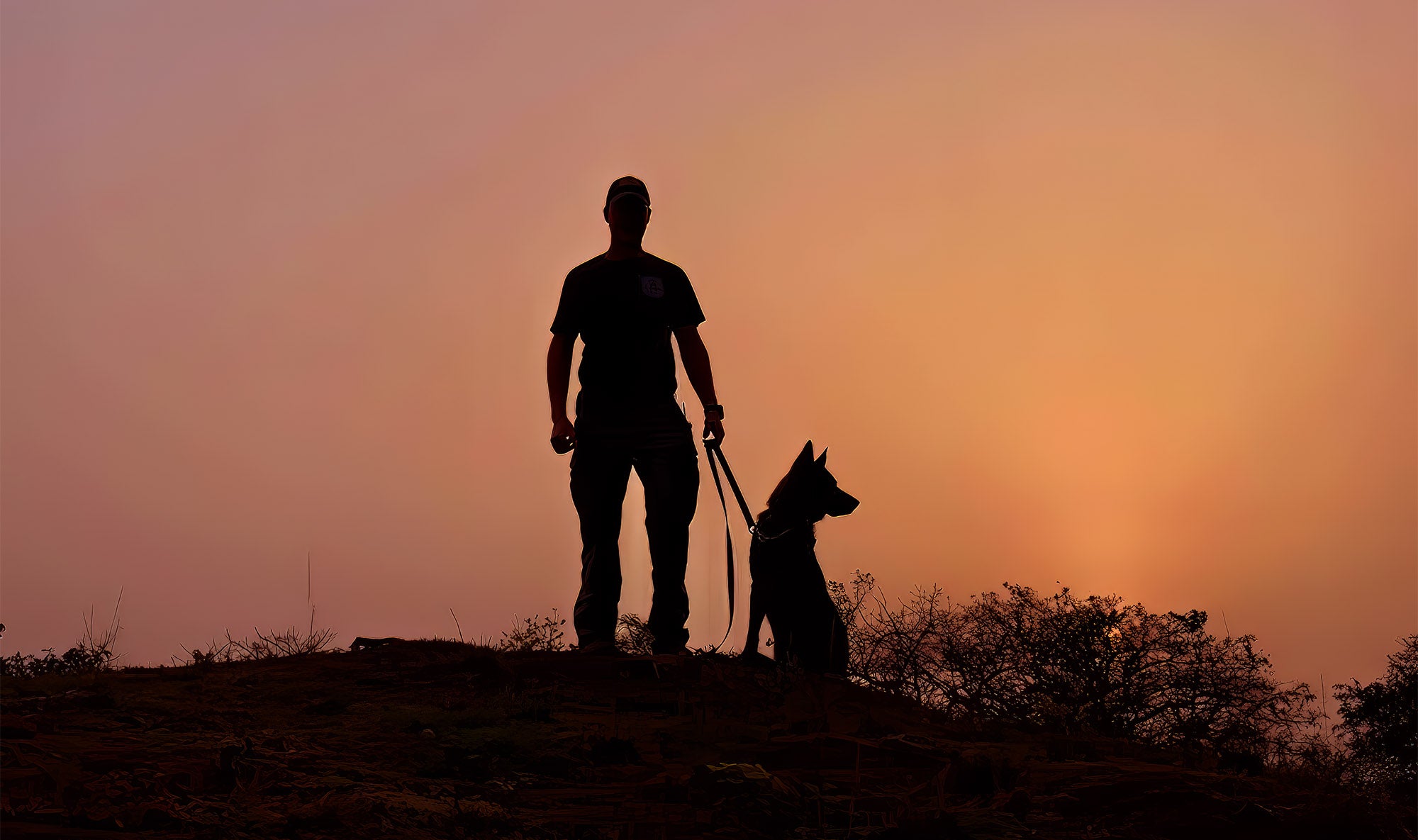
Combating Illegal Wildlife Poaching: Awareness and Solutions
Posted on
Illegal wildlife poaching has become a global crisis, threatening the survival of countless species and disrupting delicate ecosystems. This blog post seeks to explore the crisis of illegal wildlife poaching, providing an in-depth understanding of its prevalence and consequences.
We will begin by defining illegal wildlife poaching and exploring the reasons behind its prevalence. The discussion then delves into the devastating impact it has on threatened species, as well as the challenges faced by law enforcement in combating this illicit activity.
Furthermore, we will highlight prevention efforts being undertaken worldwide, with a special focus on Invictus K9 – an anti-poaching organization dedicated to preserving our planet's biodiversity. Finally, we offer tangible ways you can contribute to stopping illegal wildlife poaching and safeguarding these precious natural treasures for future generations.
Table of Contents:
- What is Illegal Wildlife Poaching?
- The Effects of Illegal Wildlife Poaching
- Why Does Illegal Wildlife Poaching Occur?
- Prevention Efforts to Combat Illegal Wildlife Poaching
- Invictus K9 Anti-Poaching Organisation
- How You Can Help Stop Illegal Wildlife Poaching
- FAQs in Relation to Illegal Wildlife Poaching
- Conclusion
1. What is Illegal Wildlife Poaching?
Illegal wildlife poaching refers to the unlawful hunting, capturing, or killing of wild animals for various purposes such as food, medicine, or trade in animal parts. This destructive behaviour has major repercussions for the environment and puts many species at risk of extinction.
Poachers often target endangered and protected species like elephants for their ivory tusks, rhinos for their horns, and big cats like lions and tigers for their fur or bones. The illegal wildlife trade is a lucrative business that generates billions of dollars annually (World Wildlife Fund), which fuels this harmful activity further.
The Effects of Illegal Wildlife Poaching
- Biodiversity loss: When certain species are targeted by poachers due to high demand in black markets, it can lead to an imbalance in ecosystems where these animals play crucial roles. For example, elephants help maintain forests by dispersing seeds while predators like lions keep herbivore populations under control.
- Habitat destruction: As more land gets cleared to make way for illegal activities related to poaching (e.g., roads), habitats become fragmented making it difficult for animals to find suitable homes or migrate safely between areas.
- Economic impact: Countries rich in biodiversity lose out on potential revenue from ecotourism when iconic species disappear due to rampant poaching. Additionally, the African Wildlife Foundation suggests that governments spend millions each year trying to combat this issue with limited success.
In view of these damaging repercussions, it is essential to back initiatives that seek to terminate unlawful hunting of wildlife and safeguard the splendor of nature for forthcoming generations. One such organization working tirelessly towards this goal is Invictus K9, which will be discussed in more detail later in this article.
Illegal hunting of wild animals is a major issue requiring prompt attention in order to safeguard vulnerable species. To understand this issue further, it is important to examine why illegal wildlife poaching occurs and what can be done about it.
Why Does Illegal Wildlife Poaching Occur?
Illegal wildlife poaching is a complex issue driven by various factors. Understanding these motivations can help us develop effective strategies to combat this devastating practice. Some of the primary reasons behind illegal wildlife poaching include:
- Financial Gain: The demand for exotic animal products such as ivory, rhino horn, and tiger bone has led to an increase in their market value. This high profit potential attracts criminals who engage in illegal wildlife poaching to make quick money.
- Cultural Practices: In some communities, traditional beliefs and practices involve the use of animal parts for medicinal purposes or as status symbols. These cultural factors contribute significantly to the persistence of illegal wildlife poaching.
- Poverty and Lack of Alternatives: Many rural communities living near protected areas depend on natural resources for their livelihoods. With limited economic opportunities available, some individuals resort to illegal activities like poaching out of desperation.
- Inadequate Law Enforcement: Insufficient funding and lack of political will often result in weak law enforcement efforts against illegal wildlife trade networks, making it easier for criminals to operate with impunity.
To address these challenges effectively, we must adopt a multi-faceted approach that tackles both supply-side (poachers) and demand-side (consumers) drivers simultaneously while promoting sustainable development initiatives within affected communities. One organization working tirelessly towards this goal is Invictus K9 - a leading anti-poaching organization focused on protecting Africa's most endangered species through innovative prevention strategies. Learn more about Invictus K9's work here.
Besides supporting organizations like Invictus K9, you can also contribute to the fight against illegal wildlife poaching by raising awareness about this issue and advocating for stronger policies. Additionally, consider supporting businesses like Wild In Africa, which donate proceeds from their sales to conservation projects aimed at protecting endangered species and preserving ecosystems.
Illegal wildlife poaching is a complex issue with many contributing factors, from poverty to organized crime. Yet, grasping the destructive effect of this unlawful hunting on habitats and animals is essential to ensure their preservation. Next we will discuss the impacts of illegal wildlife poaching on our planet's biodiversity.
Illegal wildlife poaching is driven by financial gain, cultural practices, poverty and lack of alternatives, and inadequate law enforcement. To combat this issue effectively, a multi-faceted approach that tackles both supply-side and demand-side drivers while promoting sustainable development initiatives within affected communities is necessary. Supporting organizations like Invictus K9 and businesses like Wild In Africa can also contribute to the fight against illegal wildlife poaching.
The Impact of Illegal Wildlife Poaching
The devastating impact of illegal wildlife poaching extends far beyond the loss of individual animals. Entire ecosystems and species populations are at risk, with some facing the very real threat of extinction. Let's explore the various ways in which this illicit activity wreaks havoc on our planet:
- Loss of biodiversity: As key species are hunted and removed from their natural habitats, ecosystems become unbalanced, leading to a decline in overall biodiversity. This can have cascading effects on other plants and animals within these environments.
- Risk of extinction: Some iconic African species such as elephants, rhinos, and lions face an increasingly uncertain future due to relentless poaching pressure for their valuable tusks, horns or bones respectively. According to a report by World Wildlife Fund (WWF), there has been a staggering 60% decline in global wildlife populations since 1970.
- Economic consequences: Illegal wildlife trade undermines local economies that rely heavily on tourism revenue generated through eco-tourism activities like safaris and game drives. A study conducted by the University Of Cambridge found that protected areas generate billions annually through nature-based tourism globally but suffer losses when animal populations dwindle due to poaching.
- Social implications: Poachers often come from impoverished communities where they lack alternative sources of income; however, engaging in this dangerous activity further exacerbates social issues including violence and corruption while also putting their own lives at risk.
Illegal poaching has grave implications, not only for the animals it targets but also entire ecosystems and societies. As global citizens, it is our responsibility to take action against this illicit trade and support organizations like Invictus K9, who are working tirelessly on the ground to protect Africa's precious wildlife.
We must take urgent steps to protect vulnerable wildlife from the damaging effects of illegal poaching. Fortunately, there are many prevention efforts in place to combat illegal wildlife poaching; let's explore these initiatives further.
Illegal wildlife poaching has a devastating impact on biodiversity, risking the extinction of iconic African species and undermining local economies. Poachers, many of whom come from destitute areas, bring about social issues such as brutality and dishonesty while also endangering their own lives. As global citizens, it is our responsibility to take action against this illicit trade and support organizations working tirelessly to protect Africa's precious wildlife.
4. Prevention Efforts to Combat Illegal Wildlife Poaching
In the fight against illegal wildlife poaching, various organizations and governments have joined forces to implement innovative strategies and projects aimed at protecting Africa's precious ecosystems. Various initiatives have been launched to guard against the detrimental impacts of poaching, including safeguarding biodiversity, fostering sustainable growth and raising awareness about its effects.
A. Community-Based Conservation Programs
Community-based conservation programs empower local communities by involving them directly in wildlife management initiatives. By providing alternative livelihoods through eco-tourism or sustainable agriculture, these programs reduce dependence on illegal activities such as poaching while fostering a sense of ownership over natural resources.
B. Strengthening Law Enforcement Measures
To deter potential poachers, law enforcement agencies must be equipped with necessary resources and training to implement anti-poaching laws efficiently. This includes strengthening judiciary systems, improving surveillance techniques, implementing harsher penalties for convicted poachers, and enhancing cross-border collaboration among African nations.
C. Technology-Driven Solutions
- Drones: Unmanned aerial vehicles (UAVs) or drones are increasingly being used for monitoring vast areas of protected habitats that would otherwise be difficult to patrol on foot or by vehicle (source). High-resolution cameras and thermal imaging technology deployed on UAVs enable real-time detection of illegal activities, providing invaluable intelligence to law enforcement.
- GPS Tracking: GPS tracking devices are being used to monitor the movements of endangered species such as elephants and rhinos. This technology enables conservationists to track animals' locations, identify poaching hotspots, and respond quickly if an animal is under threat.
- Artificial Intelligence (AI): AI-powered tools like machine learning algorithms can analyze vast amounts of data from camera traps or social media platforms to predict potential poaching incidents before they occur (source). These predictive models enable authorities to allocate resources more efficiently and proactively protect vulnerable wildlife populations.
D. Education and Awareness Campaigns
Raising awareness about the negative impacts of illegal wildlife poaching is essential for fostering a culture that values biodiversity conservation. Through targeted campaigns aimed at both local communities and international audiences, organizations like WildAid work tirelessly to change public perception surrounding the consumption of products derived from illegally hunted animals.
In addition to these prevention efforts, dedicated anti-poaching organizations such as Invictus K9 play a critical role in combating this global crisis by training canine units on the frontlines against illegal wildlife poachers.
Prevention efforts to combat illegal wildlife poaching are essential for the survival of endangered species, and Invictus K9 is a leading example in this field. Utilizing canines to identify poachers and their snares, Invictus K9 has been able to achieve noteworthy advances in diminishing the consequences of such exercises on delicate species.
Organizations and governments are utilizing inventive techniques to tackle unlawful wildlife poaching, such as community-based conservation initiatives, reinforcing law enforcement steps, tech-driven solutions like drones and GPS tracking gadgets, educational activities and consciousness campaigns. Invictus K9 is also playing a critical role in the fight against poachers by employing highly trained canine units on the frontlines. These measures to stop poaching are essential for protecting biodiversity, encouraging sustainable growth and increasing recognition of the destructive effects of illegal wildlife hunting.
5. Invictus K9 - Anti-Poaching Organisation
The fight against illegal wildlife poaching requires the dedication and expertise of various organisations working tirelessly to protect endangered species. One such organisation making a significant impact is Invictus K9, an anti-poaching group that specialises in training and deploying detection dogs for conservation efforts.
A Unique Approach to Combating Poaching
Invictus K9 takes a unique approach by utilising highly trained canines as part of their strategy to combat illegal wildlife poaching. The dogs, trained to detect contraband like ivory, rhino horn, pangolin scales, bushmeat and firearms, offer a more effective means of locating hidden items than traditional methods alone. The use of these specially-trained canines allows rangers and law enforcement officers to locate hidden items more effectively than traditional methods alone.
Training Process: From Puppies to Protectors
The journey from being a puppy to becoming an invaluable asset in the fight against poachers begins with rigorous training at the Invictus K9 Training Center. Dogs undergo extensive conditioning exercises designed not only for physical fitness but also mental resilience required for challenging fieldwork situations they will encounter on patrols.
- Obedience: Basic obedience skills ensure that each dog responds promptly and accurately when given commands by its handler.
- Scent Detection: Canines are taught how to identify specific scents associated with illegal activities or products related to wildlife trafficking.
- Persistence & Endurance: Fieldwork demands long hours under harsh conditions; therefore, dogs are trained to maintain focus and determination throughout their missions.
- Handler Collaboration: A strong bond between the dog and its handler is essential for effective teamwork, so Invictus K9 emphasises building trust and communication during training sessions.
Success Stories: Making a Difference on the Ground
The efforts of Invictus K9 have led to numerous successes in detecting contraband items, apprehending poachers, and protecting wildlife populations. One notable example is Ruger, an anti-poaching canine who has been instrumental in locating over 150 kilograms of ivory hidden by traffickers. The organization's canines have also contributed to the seizure of illegal firearms used by poachers, further disrupting criminal activities that threaten Africa's precious ecosystems.
Supporting Invictus K9: How You Can Make a Difference
You too can contribute towards this vital cause by supporting organisations like Invictus K9. By purchasing beautiful handcrafted jewellery from Wild In Africa, you'll not only be able to #WearYourKarma but also directly support conservation projects such as those carried out by Invictus K9. Proceeds from each sale go towards funding these crucial initiatives aimed at preserving our planet's natural heritage for future generations.
Invictus K9 anti-poaching organisation is an incredible example of how we can use technology and animal intelligence to protect our wildlife. By supporting their cause, you are taking a stand against illegal poaching activities that threaten the future of these species. Now let's explore ways in which you can help stop this activity from continuing.
Invictus K9 is an anti-poaching organisation that trains and deploys detection dogs to combat illegal wildlife poaching. The canines are trained in obedience, scent detection, persistence and endurance, and handler collaboration to locate hidden items more effectively than traditional methods alone. Invictus K9's efforts have led to numerous successes in detecting contraband items, apprehending poachers, and protecting wildlife populations.
6. How You Can Help Stop Illegal Wildlife Poaching
As an admirer of the natural world and its creatures, you can be a vital part in thwarting illegal poaching of wildlife. Raise consciousness concerning the problem, and back conservation initiatives in order to safeguard Africa's remarkable biodiversity. Here are some ways you can help:
- Educate yourself and others: Learn more about illegal wildlife poaching and its impact on ecosystems by reading articles like this one or visiting websites such as World Wildlife Fund (WWF). Share your knowledge with friends and family to raise awareness.
- Support anti-poaching organizations: Donate to reputable organizations working tirelessly to combat illegal wildlife poaching in Africa, such as Invictus K9 or other charities involved in conservation projects. Your support will provide crucial resources for their work.
- Purchase responsibly sourced products: Avoid buying items made from threatened species or those that may have been illegally obtained through wildlife trade activities. Instead, choose eco-friendly alternatives that promote sustainable practices.
- Raise awareness on social media platforms: Use your online presence to spread information about the devastating effects of illegal wildlife trade on African ecosystems. Follow accounts dedicated to conservation efforts like Wild In Africa's Instagram page (@shannonwildjewellery) where they showcase beautiful bracelets handcrafted with semi-precious stones while donating proceeds towards #WearYourKarma initiatives.
- Volunteer for local conservation projects: If possible, consider volunteering at a local level. This could include participating in clean-up events, helping with wildlife rehabilitation centers, or joining local conservation groups.
- Travel responsibly: When visiting Africa or other regions rich in biodiversity, choose eco-friendly accommodations and tour operators that prioritize sustainability and ethical practices. Additionally, follow guidelines for responsible wildlife viewing to minimize your impact on the environment.
Taking action against illegal wildlife poaching is crucial for preserving our planet's precious ecosystems and species populations. By supporting organizations like Invictus K9 and making conscious choices as a consumer, you can contribute to the global effort to combat this devastating issue. Remember that every small step counts when it comes to protecting our natural world.
To help stop illegal wildlife poaching, educate yourself and others about the issue, support anti-poaching organizations like Invictus K9 or other charities involved in conservation projects, purchase responsibly sourced products, raise awareness on social media platforms like Wild In Africa's Instagram page (@shannonwildjewellery), volunteer for local conservation projects and travel responsibly by choosing eco-friendly accommodations and tour operators that prioritize sustainability. No matter how small, every action taken can have an impact on preserving the environment.
FAQs in Relation to Illegal Wildlife Poaching
What is the effect of illegal wildlife poaching?
The effects of illegal wildlife poaching are far-reaching and devastating. Poaching leads to a decline in biodiversity, disrupting ecosystems and threatening endangered species with extinction. It also has negative social impacts, such as promoting corruption, violence, and undermining local communities that rely on sustainable tourism for income. Additionally, it can contribute to the spread of zoonotic diseases due to unregulated handling of animal products.
What are some examples of illegal poaching?
Examples of illegal poaching include hunting or capturing protected animals without proper permits or outside designated seasons. Some high-profile cases involve iconic species like elephants (for ivory), rhinos (for their horns), tigers (for their skins and bones), pangolin species (for scales) and various birds for the pet trade. These activities often occur in regions with rich biodiversity but limited resources for enforcement.
What are some examples of poached wildlife?
Poached wildlife includes a wide range of animals targeted by criminals due to demand for their body parts or live specimens in black markets. Examples include:
- African elephants - hunted for ivory
- Rhinoceroses - killed for their horns
- Lions - sought after for skin, bones & other parts used in traditional medicine
- Pangolin species - trafficked mainly because they're believed to have medicinal properties
How does WWF stop poachers?
The World Wildlife Fund (WWF) works to combat illegal wildlife trade and poaching through a multi-faceted approach. This includes supporting law enforcement efforts, working with local communities to promote sustainable livelihoods, and advocating for stronger policies and regulations to protect threatened species. WWF also works to reduce demand for illegal wildlife products through public awareness campaigns and education initiatives.
Conclusion
It occurs for various reasons, including traditional medicine, fashion, and luxury goods. The destructive consequences of poaching wildlife are far-reaching, with the potential to cause ecological disruption.
Fortunately, there are measures being taken to address this issue, including anti-poaching organizations and prevention strategies such as increased law enforcement and education programs. These include anti-poaching organizations such as Invictus K9 and prevention measures like increased law enforcement and education programs. By supporting these initiatives and being mindful of our own actions, we can all play a role in stopping illegal wildlife poaching.
If you're interested in making a difference, consider purchasing from Wild In Africa's online store where proceeds go towards conservation efforts aimed at ending illegal wildlife poaching.
New products and discounts first!
RETAIL & STUDIO
The Farm House, R527
Hoedspruit LP South Africa
Whatsapp: +27 79 225 4988
contact@wildinafrica.store
. . . . . . . . .
HEAD OFFICE
65/2 Arbor Ave, Robina
QLD 4226 Australia

